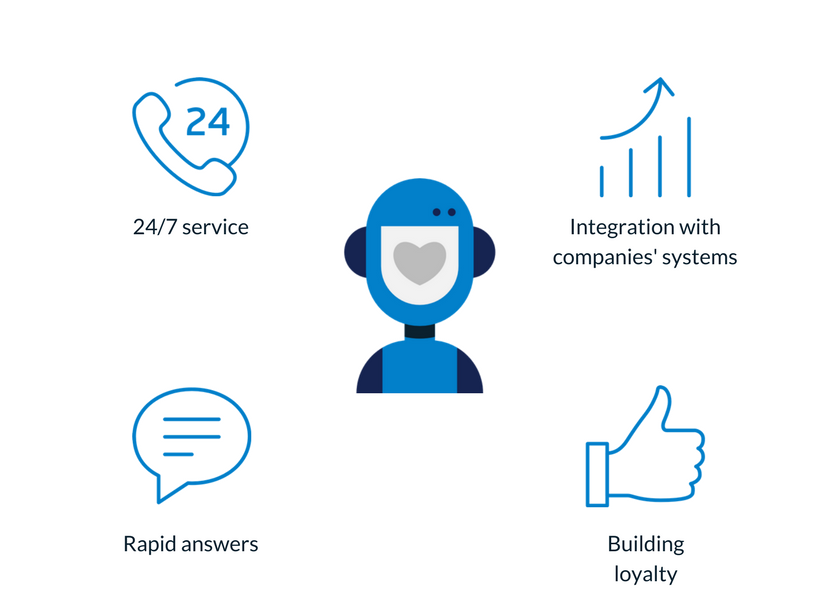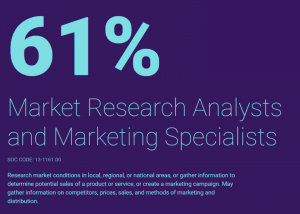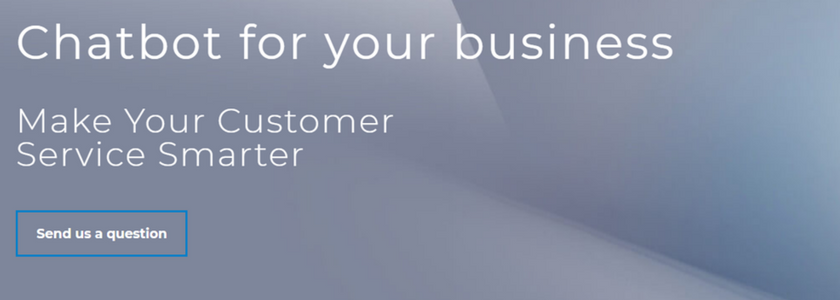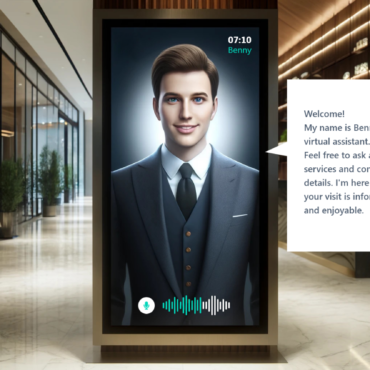How does the business use Artificial Intelligence?
Artificial intelligence – surrounds us from all sides, often we do not even realize to what extent. It is used on the pages we visit, in the stores we buy in, and even in our cars. Clearly, it is also being used more and more frequently in business.
According to the report “Boston Consulting Group and MIT Sloan Management Review”, 83% of companies believe that AI technologies should be one of their strategic priorities. However, what solutions are practically applied by business today and in which solutions is it worth investing?
Marketing and artificial intelligence – the perfect synergy?
Marketing turns out to be one of the areas that are intensively developing solutions based on AI. In the age of collecting vast amounts of customer data, a competitive advantage is to find yourself in this information noise and make the best use of it. After all, we are gaining access not only to the knowledge of who our users are but also to how they behave and what are their habits.
Today, data-based marketing is at the forefront of the most widely used approaches. It allows creating customized messages, reaching precisely those customers who we care about. As a result, businesses no longer have to bear the enormous costs associated with traditional campaigns aimed at practically everyone.
That is why marketing automation platforms have been multiplying in the recent years. They include such activities as customer segmentation, i.e., dividing them into groups with specific interests or purchasing habits. It is possible to send them a personalized message, including for example e-mails, in which the system dynamically adapts product recommendations to the user’s needs. It can even automate the creation of ads in Social Media. A correctly configured environment using natural language processing or/ and image processing can also investigate the response of recipients to messages sent to them, which allows for an immediate response from the brand. It turns out to be an essential function in the era of instant communication.

However, this is not the end of the benefits of using artificial intelligence in marketing and sales. The chatbot solutions are conquering the market. These virtual assistants contribute to the automation of customer service through technologies such as machine learning.
Chatbots “learn” from conversations with users to talk most efficiently and naturally, offer them products complementary to those they are already interested in, or even handle complaints. For example, the theBlue.ai tool also integrates with internal ERP and CRM systems. This means, for instance, that it can help to choose the right colors, sizes, and shapes of the items.
These and other features minimize customer frustration and maintain customer loyalty. Users do not feel left unattended because they receive personalized responses in real time – sometimes they are not even able to recognize whether they are talking to the machine or a flesh and bone consultant.
Work automation
A trend that has recently become a concern for many professionals is the work automation. In many areas, there is indeed a considerable risk of eliminating the need for multiple tasks to be carried out by one person.
However, there are two sides of the same coin – on the one hand, it will undoubtedly contribute to reducing the number of jobs needed currently in many industries (with the development of technology, new fields are still being created). On the other hand, experts will not have to devote their time to the often arduous and undemanding tasks and devote time to more ambitious challenges.
Daniel Susskind speaks engagingly about the economics of these processes and their possible consequences in his speech at the TED conference in 2017:
An interesting tool that can reassure many employees is the “Will Robots Take My Job?”. It analyses the likelihood of replacing the worker with a ‘robot’ from data from the US labor market. As the marketing specialist, I checked out the chances if my position would no longer be needed.
Check out the result I received:

Automation of tasks includes scheduling meetings. Special machine learning algorithms download information from the employee’s calendar. Taking his preferences into account, they can, for example, plan meetings with clients and job interviews.
Another aspect of work automation concerns recruiters and HR specialists. Chatbot tools are increasingly being tested (and even used) in this area. They allow to filter job ads at an early stage, and also to adjust most suitable offers. Later, the application is taken over by the appropriate person in the company. This saves specialists a lot of time.






